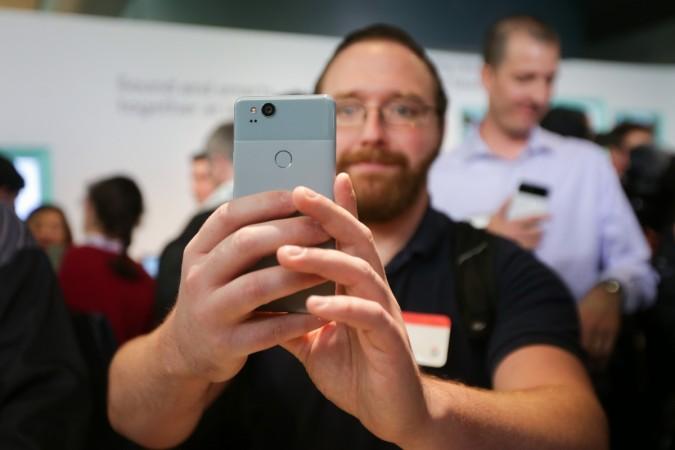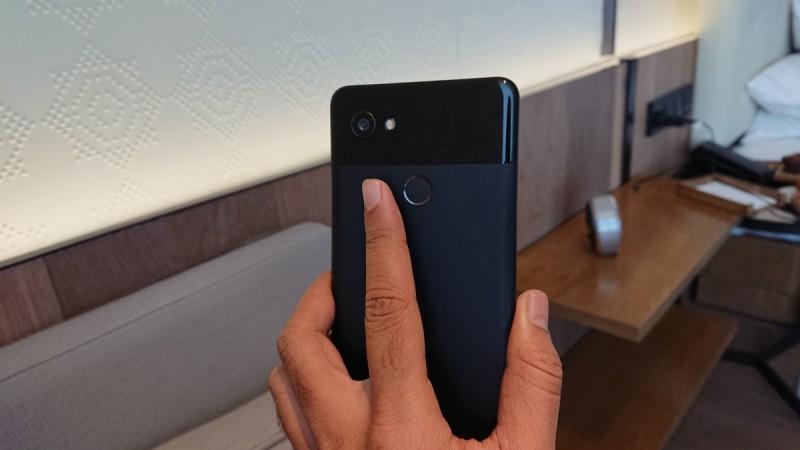
Ever since Apple launched its first bezel-less smartphone -- the iPhone X -- without the standard biometric sensor for fingerprint scanning, there has been a lot of confusion among OEMs to bring new ideas to catch up with the tech major. But Google might be working on a solution to improve and standardize an existing biometric security in Android smartphones.
Apple's Face ID is remarkably accurate and there is no fallback security like a fingerprint scanner as the company has made it foolproof. As bezel-less phones gain popularity and a rear-mounted fingerprint scanner isn't an ideal choice for smartphone users, facial recognition is the next big thing. Several OEMs such as OnePlus, OPPO, Vivo and others have integrated facial unlocking using their phones' front camera.
But Google is going a step further, and it might be an ultimate Face ID-alternative for flagship smartphones.
Iris scanners in smartphones
Following the success of Pixel 2 and Pixel 2 XL, the company has naturally dedicated a massive amount of resources for the development of Pixel 3 this year. Integrating iris scanner right inside Android could be Google's answer to Apple's Face ID, but it's all in preliminary stages.

According to a report on XDA Developers, Engineers at Fingerprint Cards -- a provider of fingerprint sensor for companies like Google, Huawei and others -- are working on adding native support for iris scanners into Android. The community-run developer forum found evidence in several commits in AOSP that support Google's plan of standardizing iris scanners for all Android flagship smartphones.
In those commits, it appears native support for iris recognition will allow apps to use the scanner for authentication and unlock the device. One particular commit titled "Biometrics Iris HAL interface," suggests iris recognition will be made available to vendors, allowing them to seamlessly add a new layer of security to smartphones.
XDA Developers suggest full support for iris scanning biometrics could be a part of Android P due to some Android 9.0-specific changes in the code. There's no strong evidence pointing towards Pixel 3 having the new iris scanning, but it can be a great add-on for security considering the current-gen only has fingerprint scanner at the back.

Iris scanning biometrics aren't entirely new to smartphones. Samsung, for instance, already offers this means of security in Galaxy S8, Galaxy S9 and Galaxy Note 7. But Samsung's solution is not deeply rooted in Google's OS, hence adding some limitations.
What does it mean for fingerprint scanners in smartphones?
Fingerprint scanners in smartphones, ranging from low-end to high-end, have gained a significant amount of recognition. It's practically a standard biometric feature in smartphones. Even with the camera-based facial unlocking, fingerprint scanners are here to stay. Even though iris scanners will be as secure and easily accessible like the fingerprint scanner, there's no reason for OEMs to ditch the standard biometric from their phones just yet.

Apple relies entirely on its FaceID for iPhone X security, but Android makers can have multiple solutions in place. In fact, at the MWC 2018, Vivo released a concept phone called APEX, which demonstrated in-display fingerprint scanning on a larger display area. This is proof that fingerprint scanners are here to stay for long and iris scanners will just be another useful and secure means of biometrics in smartphones.









